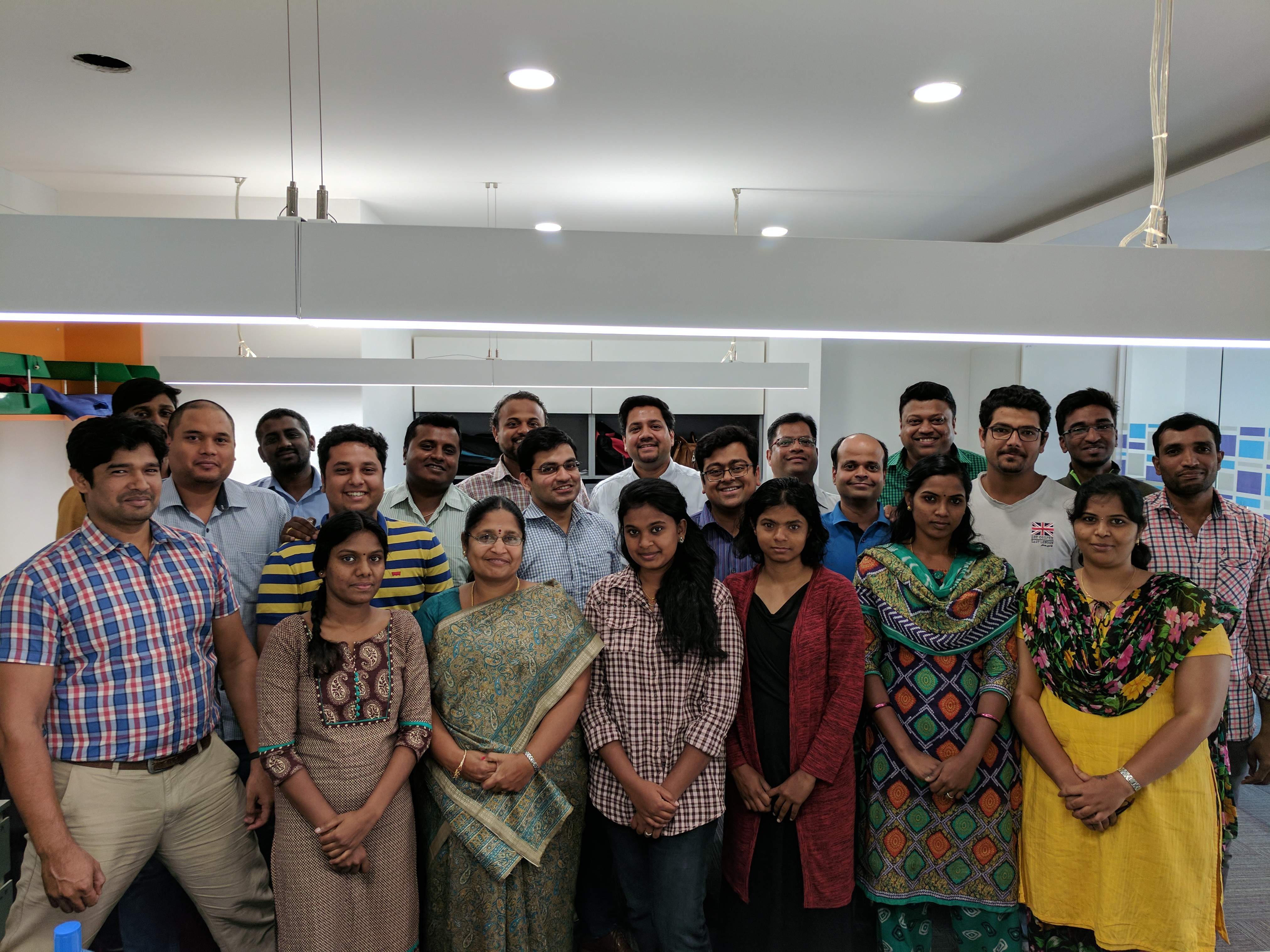How many times have you been in a situation where you run out of cash and need some loan on an urgent basis. Personal loans, Education loans, Housing loans or any such loans [where the amount is huge] are mostly planned but there are cases where you might need an ‘unplanned’ loan. The loan amount in such scenarios might be such that banking institutions might not be able to offer that much loan. This is where ‘Alternate Lending’ can be of huge help where you can either take a loan from P2P platform in which case there is no intermediary financial institution [Both Borrowers & Lenders are individuals].

The other case is where you opt for a loan via a NBFC which acts as an ‘Enabler’ and bridges tha gap between the Borrower & the Bank. 2017 has so far been a very eventful year for Fintech Startups and Alternate Lending is being touted as one of the hottest sectors in 2017. There are couple of fintech startups addressing this problem where their major target customers are ‘Salaried Professionals’.
One such startup is Creditexchange that provides salaried personal loans of between 50,000 and 5,00,000 INR through Qbera Loans. Qbera provides borrowers a seamless, convenient experience with an unparalleled turn-around time of 12-30 hours [to loan disbursal]. Creditexchange is being developed in partnership with LendFoundry, a market-leader in the development of technology stacks for alternative lending companies in the US.

Today we have a chat with Aditya Kumar, Founder & CEO of Qbera, an alternate lending startup. We discuss about Qbera, the P2P lending market, opportunities in Fintech, impact of Digital India & much more. So let’s get started with the Q&A….
How has the online lending industry changed, or you foresee any changes after UPI was introduced ?
It’s been a year since Unified Payments Interface [UPI] was launched and has had a positive impact on the payments & collections space, in general. As a result of UPI, small ticket loans can be made, and repayments collected seamlessly, around the clock.
There is a general question with lenders, what happens if borrower is not able to return the money. How is the lingering question of Credit Risk taken care of ?
There can be multiple repercussions of a borrower not being able to repay their loans. The defaulter will be reported to CIBIL [and the other credit bureaus] which will have a negative effect on a person’s credit score and significantly impact their ability to borrow in the future. In scenarios of repeated/willful defaulter, banks could also initiate legal action against the borrower.
Credit risk is mitigated by lenders in a multitude of ways. First, a person’s credit history is always checked to see if they have any history of default, or whether they have availed of credit responsibly in the past. Second, most financial institutions and online lenders alike ask for bank statements of prospective borrower to analyse income and expense patterns. Online and other alternative lenders also look at social data, mobile data, georisk, and other more ‘non-traditional’ sources of data to make a more comprehensive credit decision.
According to your data, which is the biggest category [buying house, repairs, wedding etc.] & customer segmentation [i.e. Age, City etc.] where borrowers require money ?
Salaried individuals typically borrow money primarily for : Personal exingencies, Refinancing credit card [or other] debt, or home improvement. Borrowers in the salaried segment typically reside in Tier-1 and Tier-2 cities in India, and many are aged between 25 & 40.
There are growing number of Fintech startups into online lending, P2P lending, credit lines, etc. [eg. Capital Float, Lendingkart, Rubique, Faircent, MoneyTap, etc.]. What are some of the USP’s of Qbera via-a-vis other Fintech startups or what are some of the differentiating factors of Qbera ?
Qbera focuses on offering personal loans to salaried individuals working at over 700,000 employers. In addition to this, Qbera offers loans to individuals with incomes starting at 20,000 per month [net] and those who have never availed of any loan produt before.
Qbera also strives to approve loan applications which are filled through its portal, Qbera.com, in 15 minutes~4 working hours, and disburse loans within 24 hours thereof.

What is the TAM of the consumer debt market that Qbera is trying to address ?
Qbera is addressing a market of salaried individuals in the top 13 markets in India – with incomes of between 20,000 and 75,000 per month. The size of this market is likely more than 10 million individuals, with the current personal loan balances in these markets at 200,000 crores.
Apart from CIBIL score, Social score; are there other data points that Qbera has to evaluate members [borrowers] on Qbera ?
Other credit parameters, bank statements, demographic information, information about a borrower’s employer – 33 of these parameters go into making a credit decision on an application.
Few years back, there was a huge wave about MFI’s [like SKS Microfinance], in 2017 the wave is around Fintech sector [NBFC’s], what are your thoughts about the Fintech space in the coming years ?
The fintech space in India is still at a very nascent stage, compared to what it is elsewhere in the world [e.g. the US, UK and China]. Billions of dollars of disbursements have happened across unsecured and secured products in these markets through fintech companies, and, as such, Indian players have a long way to go.
What’s unique about the Indian ecosystem is how open Banks & NBFCs are to working with Fintech companies, which should help them evolve at a great pace. In the next few years, Fintech players in India will see tremendous growth, some degree of consolidation, as they play a larger role – especially in providing the underbanked and new-to-credit populations with access to credit.
Does Qbera only offer loans to salaried professionals [as mentioned it is minimum 20K/month] or is it open to entrepreneurs, freelancers [If not, any reason for the same and any tentative timeline when it might be open to non-salaried professionals]
Qbera has laid out its plan of action in a way that it is currently focused on the salaried segment and would use the learnings from the same to expand to self-employed professions, leading to self-employed non-professionals and businesses in future. Idea is to ensure operational efficiency in one segment and use this in the other.
Does Qbera have any e-commerce partners where customer on that platform can get short term loan from Qbera [for buying big ticket items, instead of opting for EMI or other payment mechanism] ?
No, we don’t.
Can you share some tips for building an effective team for startups [especially the initial core team] ?
Strike a balance between domain expertise, experience, passion and intellect and street smartness.
Take your time in putting the founding team together – they will become the bedrock of your organisation.
Work with people you get along with – you will be spending significant amounts of time with them.
Bootstrapping vis-a-vis Institutional Funding, your views on the same ?
Both comes with their own set of benefits and perils. An entrepreneurial thought is often followed by a decision/desire to ‘bootstrap’ it before giving nod to institutional funding. It is natural to be possessive of one’s product/project and want to nurture their business idea on their own without taking investment from venture capitalists. Bootstrapping can put you in a straitjacket as far as fund for marketing and PR is concerned. External investments give you flexibility – but come with their own set of expectations.
Apart from Fintech, what are the next wave of startups that would excite entrepreneurs’ interest, VC interest ?
I think it would be Artificial Intelligence [AI]. In fact, it has already evolved into a group of inevitable technologies that entail machine learning and natural language processing.
There has been growing discussion about linking Aadhar to PAN number, in which case just providing Aadhar details help Fintech startups to verify customer’s financial credibility, can you share your thoughts on this move and whether it would be a boon for finance related startups [be it services, Fintech, etc.]
I think this is a much-needed positive move by the government as it helps them to monitor all taxable transactions and also prevents people or companies from owning multiple PAN cards. Citizens would be more educated about the benefits of paying taxes. It also saves tax payers the hassle of submitting their IT papers to the concerned departments. As far as alternative lenders are concerned, the most challenging aspect of the business is to assess credit worthiness of applicants accurately and make a fair decision. This will certainly make things easier for us.
Many startups/growth stage companies are now looking at unit-economics, how important is it to look at that factor early on in the startup’s journey ?
Unit economics have a huge role to play in the eventual success of any business, and one which investors are becoming increasingly paranoid about [and rightly so!]. If your business doesn’t have a clear roadmap to positive unit-level economics, you will never make money.
Some books that you highly recommend for entrepreneurs
The Innovators Dilemma by Clayton M Christenson
Some closing thoughts for our readers!
If you’re involved in the fintech space – I strongly believe you are in the right place, at the right time. Be patient and enjoy the ride!
We thank Aditya Kumar for his time and sharing valuable insights with our readers! If you have any questions for Aditya about Qbera, Alternate lending, Fintech, scaling up, etc., please email them to himanshu.sheth@gmail.com or leave your question in the comments section.

